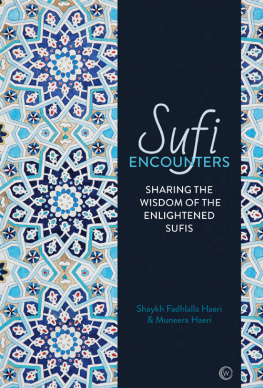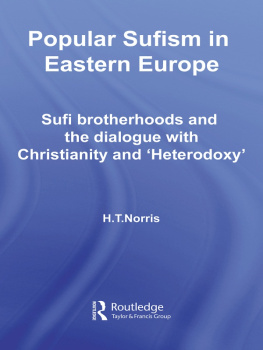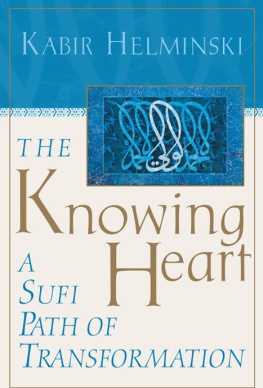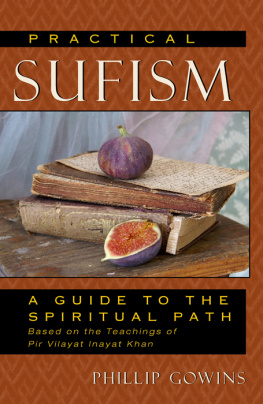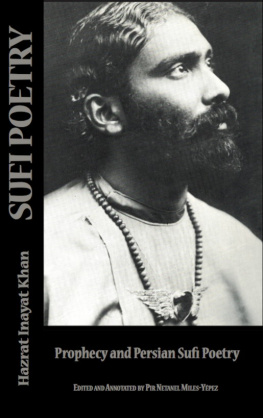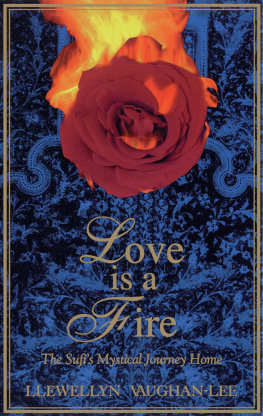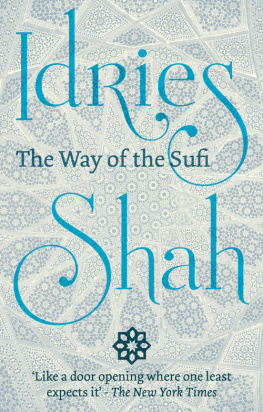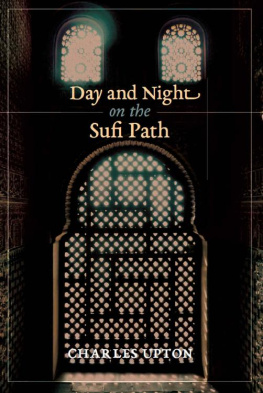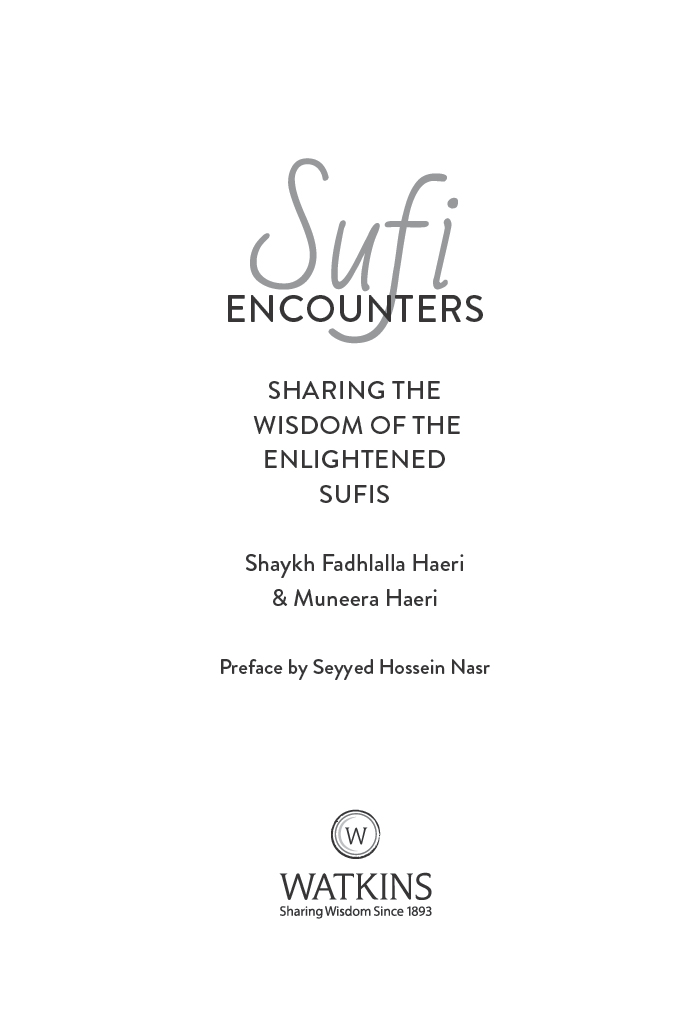Praise for Sufi Encounters
The 21st century must be a century dominated by messages of universal peace and understanding, as delivered by the great sages of our shared history. I am grateful to Shaykh Fadhlalla, a sage of our times, for dedicating his life as a spiritual beacon, and working to promote peace across continents through his universal message of love and understanding.
Ambassador Akbar Ahmed,
Ibn Khaldun Chair of Islamic Studies,
American University, Washington, DC
Sufi Encounters offers us a compelling view of Sufi history together with vivid personal remembrances of living mystics. By taking up topics like Sufi women as well as jihad, the book also challenges us with an honest assessment of the place of Sufism and the Muhammadi mystical path in todays world. This is an inspiring and at the same time beautifully subtle book, with light-filled insights on every page.
Saadi Shakur Chishti, author of The Sufi Book of Life
Sufi Encounters combination of autobiography and generous quotes, many of which the reader would not normally encounter, makes for a rich offering.
Kabir Helminski, Sufi master, music director, poet and author of Loves Ripening: Rumi on the Hearts Journey
Sufism is a path, a path to the Great Unknown, the Cosmic Force beckoning humankind to its highest destiny. That path has a celestial goal but a terrestrial map. In Sufi Encounters the discerning reader will find the map marked by stations, from tombs in South Asia, both Pakistan and India, to sites in the Maghrib (North Africa) and also South Africa as well as Iran. The authors are well-travelled guides, familiar with the multiple twists and turns of the path. Here they provide a lyrical light, clarifying both the path and its way stations with their own transformative vision of a new life beyond change, where the mulberry tree is ever in fruit, and Divine Love is never in dispute. The method and the message of this book are wondrous, making the path broader, its passage more accessible and assured for all travellers.
Bruce B Lawrence, Professor Emeritus, Duke University, Adjunct Professor, Fatih Sultan Mehmet Vakif University, co-author of Sufi Martyrs of Love
Here is a living tapestry of Sufism woven by a life following the path of love. Shaykh Fadhlalla Haeri gives us a penetrating glimpse into the inner and outer landscape of this mystical path, its history and living saints. In our present time of so much divisiveness, it is a blessing to know of these luminaries who have lived a light of oneness beyond any division.
Llewellyn Vaughan-Lee, PhD, Sufi teacher and author
Shaykh Fadhlalla Haeri is a revered spiritual master and teacher who for over 40 years has guided students from all over the world on the path of Sufism. His approach emphasizes practical, actionable knowledge that leads to self-transformation, and provides a natural bridge between seemingly different Eastern and Western approaches to spirituality. He is the author of more than 50 books on Islam, the Quran and Sufism.
Muneera Haeri is the author of The Chishtis: A Living Light and has a special interest in the history of Sufism.
This edition published in the UK and USA 2018 by
Watkins, an imprint of Watkins Media Limited
Unit 11, Shepperton House
89-93 Shepperton Road
London
N1 3DF
Text Copyright Muneera Haeri 2018
Shaykh Fadhlalla Haeri & Muneera Haeri have asserted their rights under the
Copyright, Designs and Patents Act 1988 to be identified as the authors of this work
All rights reserved.
No part of this book may be reproduced or utilized in any form or by any means, electronic or mechanical, without prior permission in writing from the Publishers.
1 2 3 4 5 6 7 8 9 10
ISBN: 978-1-786781-85-7
Typeset in South Africa by Mizpah Marketing Concepts
Printed and bound in the United Kingdom
British Library Cataloguing-in-Publication data available
Library of Congress Cataloguing-in-Publication data available
www.watkinspublishing.com
PUBLISHERS NOTE
The invocation of peace be upon him is implied every time the Prophet Muhammads name is mentioned.
Throughout the book, wherever two sets of dates are mentioned, the first will be Hijri (usually marked AH) and the second Common Era (CE).
Any reference to men in text with the connotation of mankind equally refers to women and should be regarded as non-gender specific.
ACKNOWLEDGEMENTS
My gratitude to all who have accompanied me on this journey and supported my work in the preparation of this book, in particular Shaykh Hosam Raouf, Muna and Abbas Bilgrami, Omar Essa and Abu Bakr Karolia. My thanks to Ayesha Powell, Anjum Jaleel, Ahmed Basid Sheriff and Max Lohnert, who assisted with editing and photos.
Many thanks are also given to others, as well as the above, who helped make my travels in India, Iran and Pakistan enjoyable and safe. These include Tahmina Bawany, the late Meher Bashiruddin, Ali Bilgrami, Aziza Bilgrami, Irfan Butt, Zaheer Cassim, Ambassador Asghar Ebrahimi Asl, Nayyar Ali Gauhar, Ali H Gokal, Dr Khalid Iqbal, Fatima Iqbal, Syed Salim Abbas Jilani, Aziza Pir Mahfooz Jilani, Mumtaz and Shamim Khan, Mustafa Khokhar, the late Makhdoom Mazhar Hussain, Mumtaz Mazhar Batool, Syed Mostafa Mossavi-Azad, Pir Muhammad Harun Riedinger, Mr and Mrs Sahibzada Sultan Hameed and Dr Hamid uz Zaman Xaigham. There were many others whose hospitality I enjoyed and to whom I also give my thanks.
PREFACE
I have known Shaykh Fadhlalla Haeri for three decades, during which I have met him on different continents, but I feel as if I have known him for my whole lifetime. Although his mother tongue is Arabic and mine Persian, we both hail from a Persian background. The famous Shaykh Abd Allah Hairi, one of the distinguished members of his family, was a close friend of my father and I have known many other members of the Haeri family. Like Shaykh Fadhlalla, I hail from a Shiite background and at the same time belong to the Shadhili Sufi lineage, which is primarily a Sunni tariqa. And, like Shaykh Fadhlalla, I was first educated in the sciences before turning to philosophy and Sufism. I have also, again, like him, been exiled in the West (and in his case later in South Africa) for the past few decades. When in his presence, I feel to be not only in the company of a spiritual brother, but in the presence of a family member. When I read in the present book his chapter on Iran, I felt sad that I was not able to be present there in his company. I wished so much that I could have been his tour guide in Nayshapur, Isfahan and so many other historical sites of my homeland.
The son of a distinguished family of religious scholars, Shaykh Fadhlalla was born and brought up in Karbala near the tomb of my ancestor, the third Shiite imam, Husayn ibn Ali upon whom be peace on whose birthday I was born and after whom I was named. A brilliant child, Shaykh Fadhlalla studied in Iraq in the field of engineering and science and then turned to the field of business, in which he became very successful. In this matter there is a contrast between us for I have never had a gift for business administration and so went immediately into the field of scholarship and teaching upon finishing my doctoral studies at Harvard. But even then we were both seeking the same goal, which is the world of the Spirit, and so both ended up in the embrace of Sufism. Shaykh Fadhlalla also began to study the Islamic philosophical and Sufi traditions and, like myself, became a great admirer of Mulla Sadra.
Next page
